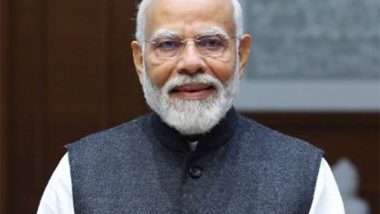New Delhi [India], January 8 (ANI): Prime Minister Narendra Modi has stated that the Draft Digital Personal Data Protection Rules, 2025, prioritises India's commitment to citizen-centric governance.
Responding to the post by Union Minister Ashwini Vaishnaw, Modi wrote, "Union Minister, @AshwiniVaishnaw explains how the Draft Digital Personal Data Protection Rules, 2025, prioritises India's commitment to citizen-centric governance. The rules aim to safeguard personal data while driving growth and inclusivity."
On January 5, the Ministry of Electronics and Information Technology (MeitY) on Sunday elaborated on the draft Digital Personal Data Protection (DPDP) Rules, designed to protect citizens' rights under the Digital Personal Data Protection Act, 2023.
The Ministry announced that public feedback on the draft rules would be open until February 18, 2025, through the MyGov portal.
The DPDP Act and the draft rules are structured to keep pace with the rapid advancements in digital technologies, it added. The Data Protection Board, envisioned as a fully digital entity, will enable citizens to lodge complaints and resolve disputes online without the need for physical presence. The rules also aim to educate citizens about their rights and empower them to manage their personal data via multilingual digital platforms.
In addition to online feedback, the Ministry plans structured consultations with civil society, industry, and government stakeholders to refine the rules. The finalised rules will then be submitted to Parliament for approval.
The draft rules aim to protect individual rights without causing disruptions to existing digital practices. Organizations will be given adequate time to comply with the new regulations, with minimal compliance burdens. Data processing based on prior consent will be allowed to continue, with notices issued to individuals, ensuring their rights under the law are upheld.
To safeguard children's personal data, Data Fiduciaries will be required to implement measures to obtain verifiable parental consent. Additionally, startups will benefit from reduced compliance requirements, while significant Data Fiduciaries will be subject to stricter obligations.
The DPDP Act introduces graded financial penalties based on the severity and duration of violations. Businesses may voluntarily submit undertakings to the Data Protection Board to avoid penalties during proceedings, ensuring fair and proportional enforcement.
The draft rules do not impose a blanket requirement for storing personal data within India. However, restrictions on cross-border data transfers may apply to specific categories of personal data as recommended by a designated committee.
By integrating digital-first mechanisms and maintaining a balanced regulatory framework, the draft DPDP Rules aim to secure the rights of citizens while ensuring India's digital economy continues to thrive. (ANI)
(This is an unedited and auto-generated story from Syndicated News feed, LatestLY Staff may not have modified or edited the content body)













 Quickly
Quickly

















